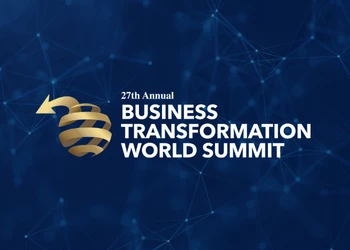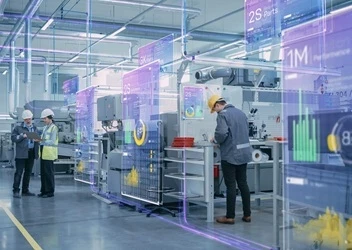LSG Sky Chefs Transforms Its Business Using Lean Process Improvement
Add bookmark
As part of its annual European Process Excellence Summit in London, IQPC recognizes the accomplishments of the Process Excellence community through its much anticipated Process Excellence Awards. This April, IQPC honored the world’s largest provider of in-flight services, LSG Sky Chefs — the brand name of all the groups in the LSG Lufthansa Service Holding AG, a 100 percent subsidiary of Deutsche Lufthansa AG — with the 2010 Process Excellence Award for Best Green Process Improvement Project and the Honorary Mention Award for Best Start Up Program.
In this Six Sigma IQ spotlight interview, Pankaj Aggarwal, Senior Vice President Lean Enterprise at LSG Sky Chefs, reflects on what drives the success of his organization’s Lean Process.
Why did LSG Sky Chefs decide to go with a Lean Enterprise program in 2008? What made the Lean methodology so appealing?
In 2008, we launched the program, "Upgrade to Industry Leadership," which aimed to bring the company to the level of "best" in the industry. To achieve this goal, we had to transform the company within a very short timeframe. Keeping in mind that our processes are very manual in nature, we chose Lean as a key methodology to drive this change process.
How was Lean initially perceived by employees and management? Did your program run into any buy-in challenges?
There was certainly a mixed reaction to Lean due to the changes it could bring about. However, buy-in challenges are usually part of such a large-scale program, but the key is how you address them. Sometimes the overcoming of the buy-in challenges brings more clarity and conviction in your approach to the deployment.
[eventPDF]
What step-by-step Lean deployment approach did LSG Sky Chefs take in rolling out its program? What were the major lessons along the way?
The first step was gaining buy-in from the top management. We did this by taking management through training and workshops so that they could practically experience the benefits of Lean and make conscious decisions, as opposed to basing their decisions on theory only. Second, we focused on working on key facilities that we considered to benefit most from Lean. By doing this task, we improved the quality of these facilities dramatically; we then worked on making these processes even better and faster. Third, we created pockets of excellence in different parts of our worldwide offices to create a pull effect across the globe and at the same time created best practices of different processes. Fourth, we replicated those best practices across the major sites to multiply the results and worked on developing the regional teams to sustain the program in the different regions.
How did LSG Sky Chefs ensure that this Lean deployment would be sustainable?
There were key decisions we took to make this program sustainable. The first decision was to develop regional Lean organizations so that the talent would reside where the action is. The second was to train 1,500 people on Lean and problem solving. We also decided to provide hundreds of people with Lean practitioner training so that key people in each facility had proper knowledge of Lean. Lean is one of the key strategic initiatives in the overall strategy of the company and one of the primary drivers of sustainability.
LSG Sky Chefs’ Lean Enterprise program earned honorary mention in the Best Start Up Program category at the 2010 IQPC European Process Excellence Awards. What critical success factors and results do you believe led to this honor?
I believe that these critical success factors were our "customer first" attitude, speed, focus on results, development of people, and our management commitment.
How did your "Dish Wash Process Change" project — which won the 2010 IQPC European Process Excellence Award for Best Green Improvement Project — fit in with your organization’s overall Lean initiative?
The dish washing process is one of the key processes in our organization. It has a very high impact on customer quality and operational performance, its highest impact being on the environment. This project thus became a very obvious choice for us to implement. In addition, LSG Sky Chefs has a huge opportunity to replicate this project across almost 200 locations of the company.
What are the areas of opportunity for the Lean Enterprise program going forward in 2011?
The areas of opportunity for our program are going beyond the four walls to complete our supply chain, extending the program into non-operational areas, and converting the program from a continuous improvement initiative to the way we run our business.
Interview by Genna Weiss























